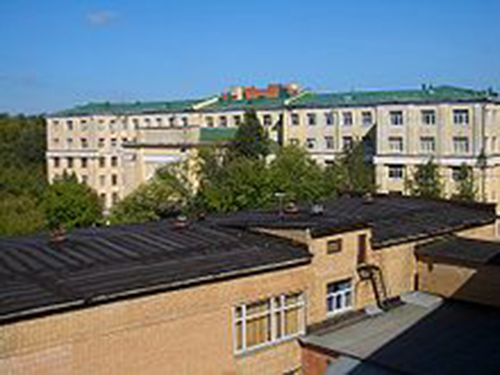people
President Sung-Mo “Steve” Kang of KAIST has been appointed a member of the International Board of the Moscow Institute of Physics and Technology (MIPT) in 2014, a leading Russian university specializing in theoretical and applied physics, mathematics, and related science and technology disciplines.
President Kang is the only scientist from Asia to become the latest member of the MIPT International Board. Consisting of 11 highly regarded scientists and scholars from all around the world, such as Professor Carlo Rubbia, a Nobel laureate in physics in 1984, President Alexander F. Andreev of the Kapitsa Institute for Physical Problems, President Ralph Eichler of the Zurich Federal Institute of Technology, and President Jaques Biot of the École Polytechnique Paris. Currently, President Leo Rafael Raif of MIT chairs the Board.
MIPT created the International Board (http://mipt.ru/en/about/general/international-board/) in 2013 to promote collaboration in international research and educational programs as well as to enhance its global visibility in the international community.
MIPT was established in 1946 by a group of prominent Soviet scientists including Pyotr Kapitsa, a Nobel laureate in physics in 1978, and was approved later in 1951 by the government of the former Soviet Union as a state university. Often referred as the “Russian MIT,” MIPT has earned international and domestic recognition through its unique educational system, providing students with opportunities for rigorous education in fundamental science and extensive research at leading research institutions of the Russian Academy of Sciences.

-
research KAIST Develops a Multifunctional Structural Battery Capable of Energy Storage and Load Support
Structural batteries are used in industries such as eco-friendly, energy-based automobiles, mobility, and aerospace, and they must simultaneously meet the requirements of high energy density for energy storage and high load-bearing capacity. Conventional structural battery technology has struggled to enhance both functions concurrently. However, KAIST researchers have succeeded in developing foundational technology to address this issue. < Photo 1. (From left) Professor Seong Su Kim, PhD
2024-11-27 -
event KAIST Office of Global Initiative Hosts 2024 Global Startup Internship Seminar
< Photo of ImpriMed CEO Sungwon Lim’s lecture > The Office of Global Initiative at KAIST successfully hosted the 2024 Global Startup Internship Seminar (GSIS) from Wednesday, November 20, to Friday, November 22. Now in its third year, following the 2022 Global Startup Internship Fair, the GSIS aims to introduce KAIST students to internship opportunities at U.S.-based startups and encourage participation in global internship programs, particularly for students with entrepreneu
2024-11-25 -
research KAIST Secures Core Technology for Ultra-High-Resolution Image Sensors
A joint research team from Korea and the United States has developed next-generation, high-resolution image sensor technology with higher power efficiency and a smaller size compared to existing sensors. Notably, they have secured foundational technology for ultra-high-resolution shortwave infrared (SWIR) image sensors, an area currently dominated by Sony, paving the way for future market entry. KAIST (represented by President Kwang Hyung Lee) announced on the 20th of November that a research t
2024-11-22 -
event KAIST’s RAIBO2 becomes the World’s First Robo-dog to Successfully Complete a Full-course Marathon
KAIST's quadrupedal walking robot "RAIBO", which can run seamlessly on sandy beaches, has now evolved into "RAIBO2"and achieved the groundbreaking milestone by becomeing the world's first quadrupedal robot to successfully complete a full-course marathon in an official event. < Photo 1. A group photo of RAIBO2 and the team after completing the full-course marathon > KAIST (President Kwang Hyung Lee) announced on the 17th of November that Professor Je Min Hwangbo's research team of t
2024-11-17 -
research KAIST Unveils New Possibilities for Treating Intractable Brain Tumors
< Photo 1. (From left) Professor Heung Kyu Lee, KAIST Department of Biological Sciences, and Dr. Keun Bon Ku > Immunotherapy, which enhances the immune system's T cell response to eliminate cancer cells, has emerged as a key approach in cancer treatment. However, in the case of glioblastoma, an aggressive and treatment-resistant brain tumor, numerous clinical trials have failed to confirm their efficacy. Korean researchers have recently analyzed the mechanisms that cause T cell exhaus
2024-11-15